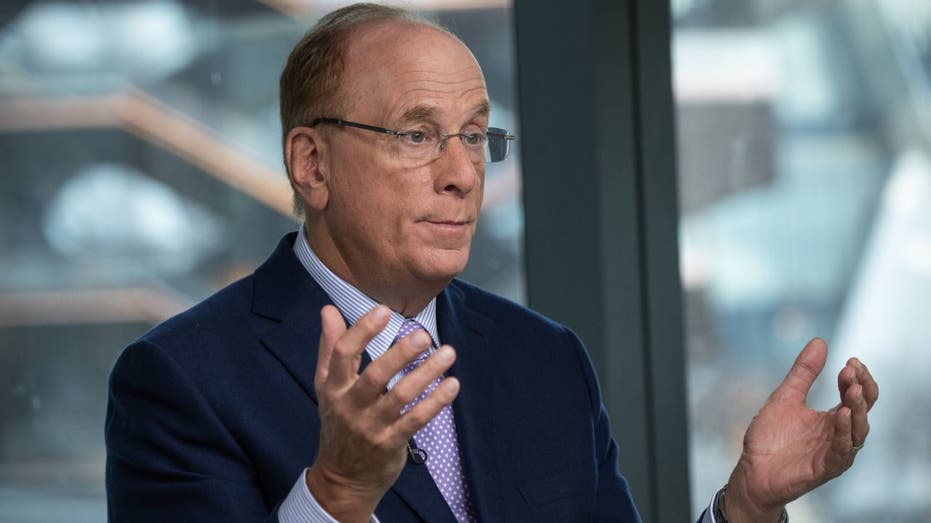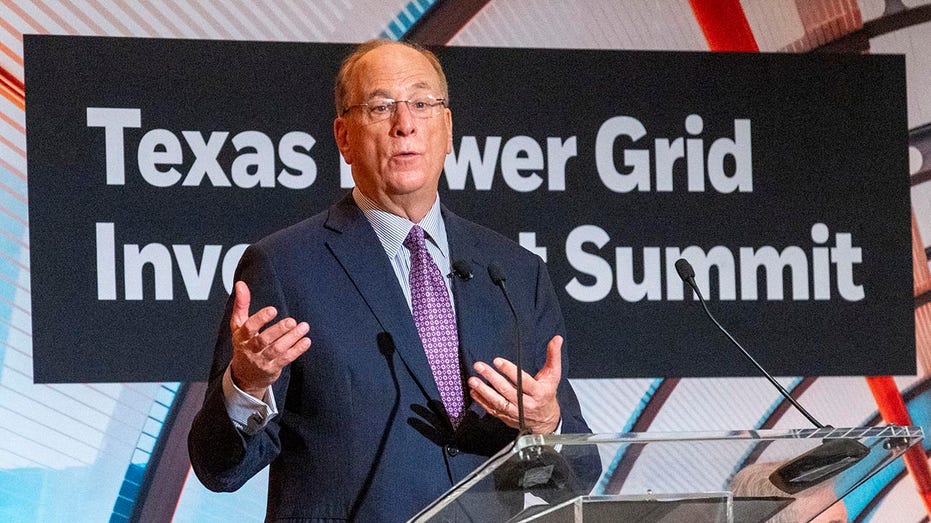BlackRock CEO says Social Security's retirement age 'a bit crazy' as crisis looms
BlackRock CEO Larry Fink said Social Security's retirement age looks 'a bit crazy' given the program's projected insolvency and benefit cuts
Larry Fink reveals how Americans can rethink retirement
BlackRock Chairman and CEO Larry Fink discusses saving money for retirement on 'The Claman Countdown.'
BlackRock CEO Larry Fink sent his annual letter to investors on Tuesday in which he cited the "immense strain" on Social Security amid the aging of the U.S. population and the need to reform the retirement system given its looming insolvency.
Fink explained the economics behind Social Security, which collects taxes from people who are working to pay those in retirement who are receiving benefits: "During your working years, the government takes a portion of your income, then after you retire, it sends you a check every month. The idea actually originates from pre-World War I Germany, and these 'old-age insurance' programs gradually became more popular over the 20th century largely because the demographics made sense."
"Think about someone who was 65 years old in 1952, the year I was born. If he hadn't retired already, that person was probably getting ready to stop working. But now think about that person's former colleagues, all the people around his age who he'd entered the workforce with back in the 1910s. The data shows that in 1952, most of those people were not preparing for retirement because they'd already passed away," Fink wrote.
SOCIAL SECURITY TRUST FUND ON PATH TO INSOLVENCY

BlackRock CEO Larry Fink said Social Security's retirement age looks "a bit crazy" as the program faces insolvency and benefit cuts a decade from now. (Victor J. Blue/Bloomberg via Getty Images / Getty Images)
Data from the Social Security Administration (SSA) shows that the ratio of covered workers paying taxes to the number of beneficiaries was 8.6 workers to beneficiaries as of 1955. That number declined to 2.8 as of 2013 due to the aging of the U.S. population.
Fink noted that Americans' longevity in retirement is also straining the financial health of Social Security and wrote that, "Today, if you're married and both you and your spouse are over the age of 65, there's a 50/50 chance that at least one of you will be receiving a Social Security check until you're 90."
| Ticker | Security | Last | Change | Change % |
|---|---|---|---|---|
| BLK | BLACKROCK INC. | 1,079.90 | +23.52 | +2.23% |
"All this is putting the U.S. retirement system under immense strain," Fink added. "The Social Security Administration itself says that by 2034, it won't be able to pay people their full benefits. What's the solution here? No one should have to work longer than they want to. But I do think it's a bit crazy that our anchor idea for the right retirement age — 65 years old — originates from the time of the Ottoman Empire."
SOCIAL SECURITY CUTS COULD BE COMING SOON — HERE’S WHO WILL BE AFFECTED
Larry Fink: I don't think markets are in a bubble
BlackRock Chairman and CEO Larry Fink gives his economic outlook on 'The Claman Countdown.'
Social Security's two major trust funds help augment payroll taxes as a source of funding to pay out benefits to beneficiaries, but those are projected to be exhausted a decade from now. Once the trust funds are depleted, incoming payroll taxes will be the sole source of funding for benefits, and under current law, automatic cuts would kick in to match benefits paid to incoming recipients.
An analysis by the nonpartisan Committee for a Responsible Federal Budget last year found the average dual-income couple retiring in 2033 would see a benefit cut of 23%, or $17,400 in current-dollar annual benefits — while a single-income couple would see benefits cut by $13,100.
SOCIAL SECURITY, MEDICARE ARE ON THE ROCKS — AND NO LEADER IN EITHER PARTY WANTS TO STEP UP

BlackRock CEO Larry Fink said that the asset manager will be announcing partnerships and initiatives to facilitate a conversation about Social Security and retirement in America. (Kirk Sides/Houston Chronicle via Getty Images / Getty Images)
Fink's letter noted that the Netherlands moved to address financial challenges impacting its state pension over a decade ago by gradually raising the retirement age and automatically tying it to changes in life expectancy.
He suggested that the U.S. should have a conversation about what the average retirement age should be, as well as ways to incentivize more people to work longer rather than retiring to boost the labor force participation rate.





















